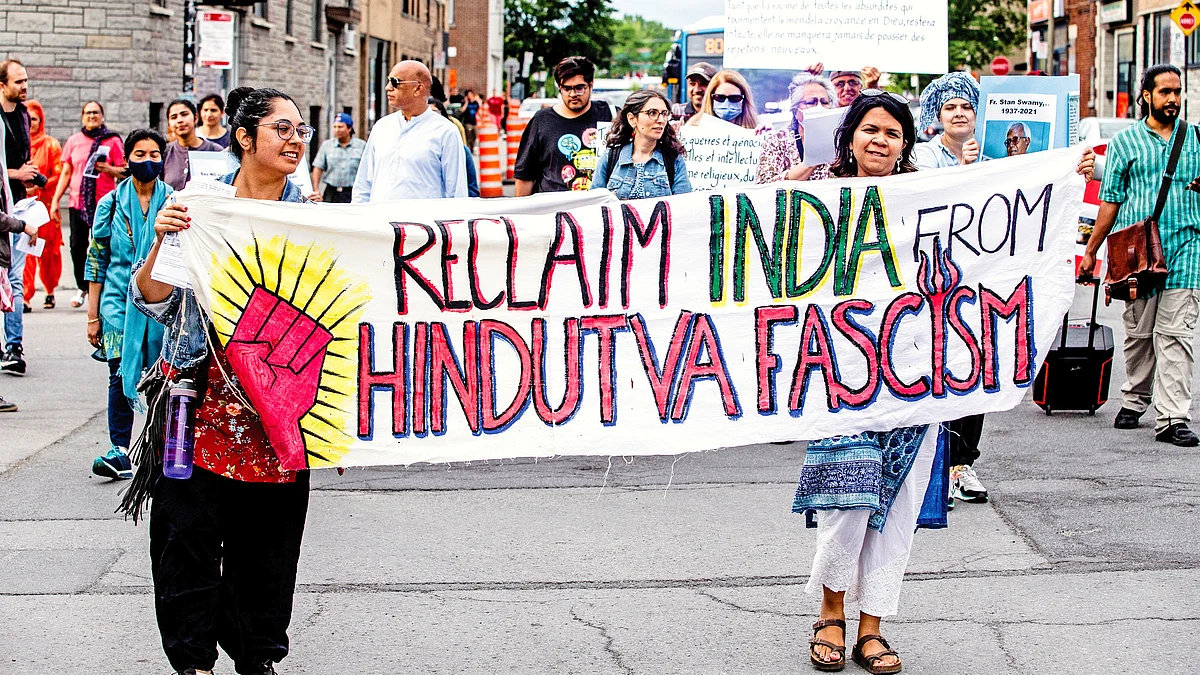Indians abroad feel the surveillance heat
The Indian diaspora is waking up to the nightmare of ‘transnational repression’ — and they are not amused, writes Ashok Swain

As the world’s largest democracy, India had an enviable standing in the community of nations. That soft power has eroded rapidly in recent years, and a country once seen as a beacon of democratic pluralism is now drawing comparisons with authoritarian regimes. One of the clearest signs of this transformation is the Modi government’s growing use of ‘transnational repression’.
‘Transnational repression’ is a term used to describe State actions to intimidate, silence or harm members of their diaspora and exile communities abroad. This tactic is generally associated with authoritarian regimes such as China, Russia, North Korea and Iran. India’s increasing use of these strategies marks a disturbing departure from its democratic roots. It also raises uncomfortable questions about the direction of India’s foreign and domestic policies under Prime Minister Narendra Modi.
Across North America, Europe and Australia, there is mounting evidence that Indian state institutions, and actors aligned with them, are surveilling, harassing and attempting to delegitimise critics of the current regime. This includes dissenting academics, activists advocating for minority rights, and Sikh, Muslim, Christian and Dalit members of the Indian diaspora who speak out against Hindu nationalist policies.
These individuals have been subjected to death threats, stalking, smear campaigns and even direct threats to their families in India. In several instances, they have faced cancellation of their OCI (Overseas Citizen of India) status, visa refusal, digital defamation and pressure to remain silent under the threat of consequences at home.
What is particularly alarming is the degree of institutional coordination behind these efforts. Indian diplomatic missions are not merely ignoring such activities, they are often actively involved. In some cases, consulates have monitored protests and gatherings, issued warnings to vocal dissidents, and collaborated with diaspora groups known for their allegiance to the ruling party.
Also Read: Trump tightens the tariff screws again
These are not the isolated actions of overzealous officials, but part of a broader government-supported ecosystem designed to suppress criticism abroad.
Supporters of the Modi regime argue that powerful Western nations also conduct operations abroad to protect their national interests. The US, UK and Israel have long histories of covert operations and intelligence activities beyond their borders.
The distinction, however, lies not only in the methods employed but also in their targets. Western powers, when acting abroad, rarely direct their operations against their own diaspora, their own citizens, students, journalists or peaceful political activists.
Western democracies, for all their flaws, still operate in a framework of institutional accountability. Intelligence overreach is subject to legal challenge, media scrutiny and parliamentary oversight. India’s state actions in the Modi years are more closely aligned with regimes that criminalise opposition and export their authoritarianism beyond national borders.
For the Modi government, controlling the narrative — and not just at home — has become a central political objective. The diaspora, once hailed as ‘India’s pride’, is now increasingly seen as an enemy if it fails to conform to the State’s preferred image. Those who speak out are labelled anti-national or jihadi or Khalistani, regardless of their ideological or political positions.
Publicly challenging the Modi government’s record on human rights, religious freedom or democratic processes can now invite not just online trolling but coordinated harassment involving both digital and physical threats.
The Modi regime’s campaign of transnational repression has also begun to sow divisions in the Indian diaspora. Cracks have begun to show as diaspora communities come under surveillance and are subjected to intimidation and smear campaigns coordinated by Indian missions and their proxies.
Many in the diaspora, particularly young, secular, progressive individuals, have grown disillusioned with the Modi government’s authoritarian ways. They see a regime that demands loyalty but cannot protect their civil rights in the West.
Hindutva organisations still exert influence, but resistance is growing. Student groups, academic associations, civil society coalitions and human rights activists of Indian origin are now among the most visible and organised critics of the Modi government’s transnational repression.
The consequences of these tactics are profound. For host countries, allowing a foreign government to operate intimidation campaigns within their borders undermines sovereignty and erodes civil liberties.
Law enforcement agencies in the West have already issued warnings to individuals deemed at risk, and several governments have begun to hold parliamentary hearings to investigate the extent of foreign interference. There is growing recognition that these aren’t just human rights issues — they are national security concerns.
For India, the cost is even higher. Its international legitimacy is eroding. Strategic partnerships, especially with western democracies, hinge not just on shared economic interests but shared values too. When India shows its authoritarian face, its reliability as a democratic partner comes into question; intelligence cooperation suffers; legal consequences become a real risk. It’s not without reason that India’s national security advisor (NSA) is avoiding travel to the US and Canada.
At home or abroad, the Modi regime treats dissent as treason. The message is clear: if you oppose the government, even from afar, you are not safe. Your family is not safe. Your passport, your citizenship, your livelihood may be at risk.
But this transnational repression is not going unnoticed, and it is not without serious consequences, whether or not the powers that be in India see the writing on the wall.
Views are personal
Ashok Swain is a professor of peace and conflict research at Uppsala University, Sweden. More of his writing may be read here
Follow us on: Facebook, Twitter, Google News, Instagram
Join our official telegram channel (@nationalherald) and stay updated with the latest headlines
